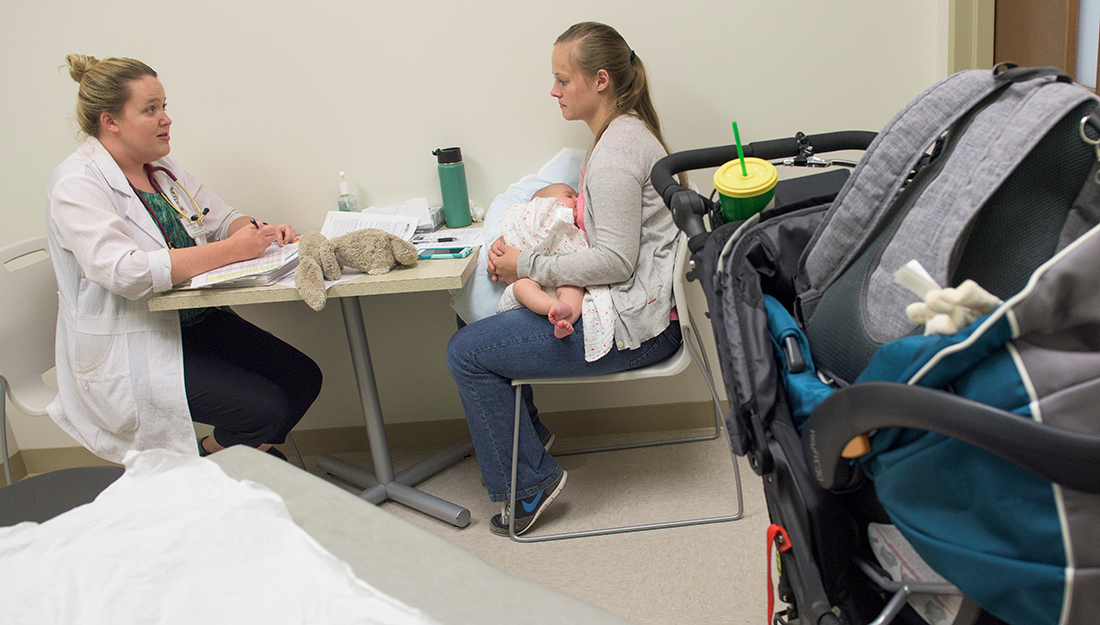- Christina Sumners
- Nursing, Research, Show on VR homepage
Grant funds much-needed women’s cancer screenings
Underserved women receive exams and screenings while students gain clinical experience

Texas A&M University Health Science Center
For the last several years, the Cancer Prevention and Research Institute of Texas (CPRIT) has funded initiatives to promote cancer screenings among underserved Texans while giving future nurses and physicians educational opportunities. One program using the CPRIT grant funds provides breast and cervical cancer screenings to women in the Brazos Valley.
To study how well this program works, researchers at the Texas A&M University Health Science Center surveyed the women receiving these services at one referring partner of the grant, Health for All clinic in Bryan, Texas. They reported the results, which overall showed high satisfaction among the women served, in an article published in The Journal for Nurse Practitioners.
The Texas A&M College of Nursing began its family nurse practitioner (FNP) program in 2015, and that year began using Health for All as training site for both FNP students and Bachelor of Science in nursing (BSN) students. From 2015–2016, under the supervision of faculty members, these students gave 83 women well-woman exams. These included 75 cervical cancer screenings and 47 referrals for mammography, at no cost to the patient.
“Health for All serves as the primary care clinic for many people without insurance, but they provided no well-woman preventive services,” said Cindy Weston, DNP, FNP-BC, first author of the article. “Through the grant funds, we have been able to provide these services by hosting a well-woman clinic about six times per year.”
There’s a gap in care for women between the age of 45, when they’re no longer eligible for care through Healthy Texas Women, and 65, when they’re eligible for Medicare. Unfortunately, women age 54 to 65 are also the age group who should get mammograms every year, according to the American Cancer Society.
Qualitative surveys revealed 95 percent satisfaction among the women served, and all of them reported they would refer friends and family.
“The project was a great opportunity to provide women’s services to those who have limited access to health care, and it enabled students to gain clinical experience while serving these women,” said Kara Jones-Schubart, DNP, FNP-BC, another author of the article.
“It provides a true ‘service-learning’ experience in which students serve the community while shoring up their clinical competencies,” Weston added.
The students, under faculty supervision, care for each patient. The FNP students take the lead, doing the exam itself, formulating a plan of care and securing any needed referrals for other services. Meanwhile, the BSN students, who have been working in these clinics as an assignment for their community health course, handle taking vital signs and basic health histories. The BSN students also develop awareness strategies to let women know about these services. As they devise creative ways to spread the word, they also learn more about the barriers to care many of their patients face and brainstorm creative ways to help overcome these challenges.
“It’s a collaborative effort between the bachelor’s degree students, the FNP students and all of the staff at Health for All, who have been instrumental in making everything happen,” Weston said. “Because it seems to be effective and the patients seem satisfied with their care, we hope to continue the program and even expand the services provided.”
Media contact: media@tamu.edu


